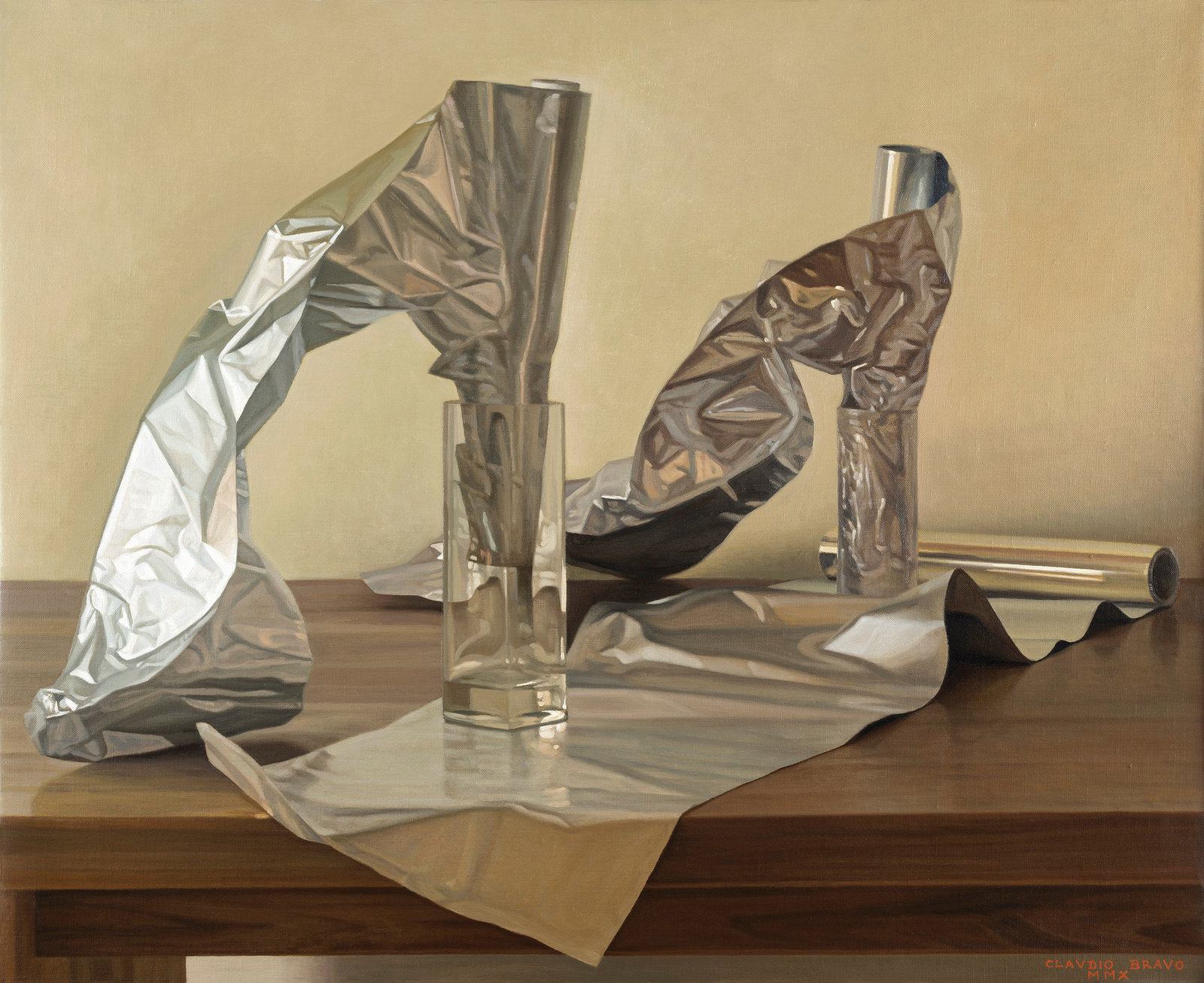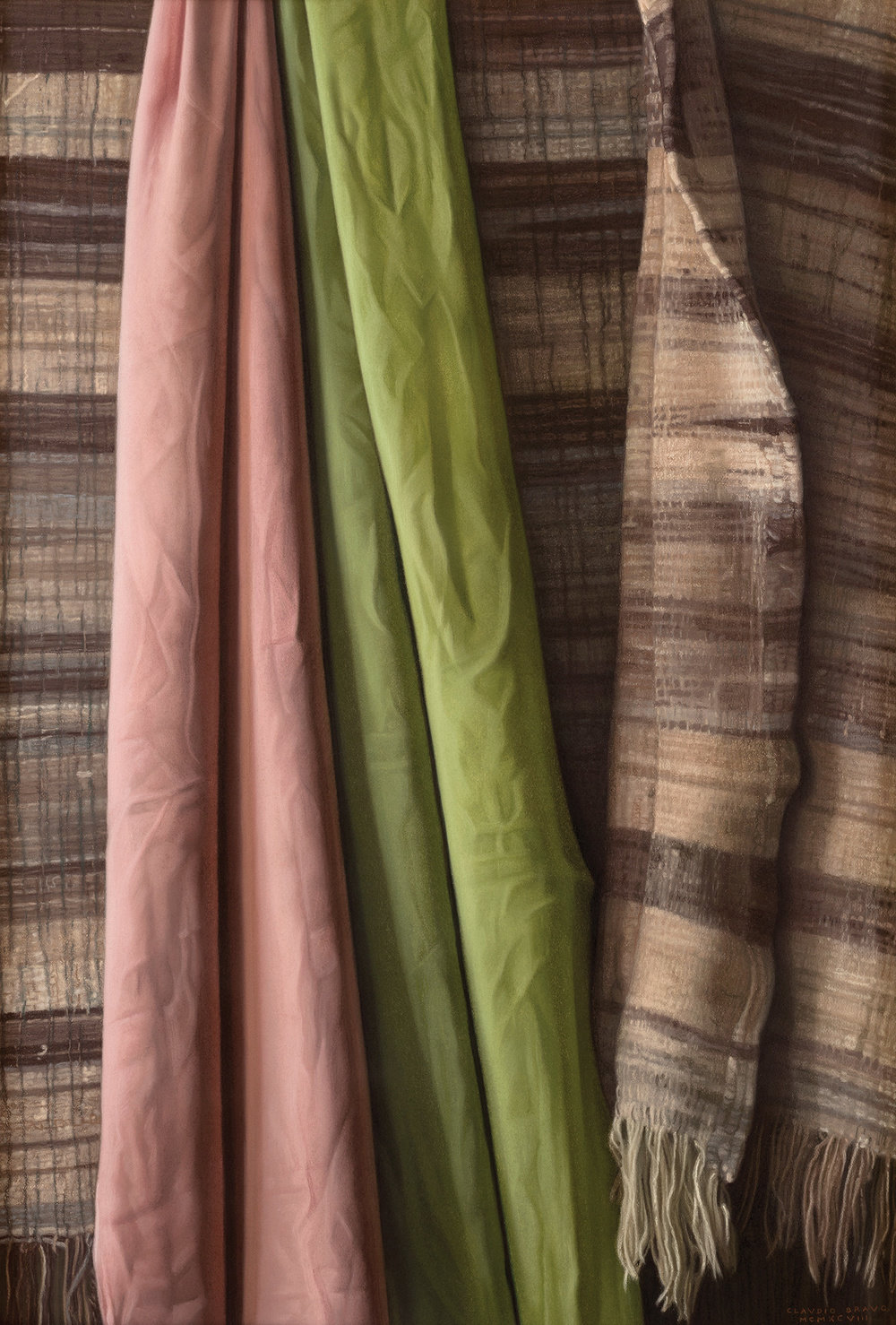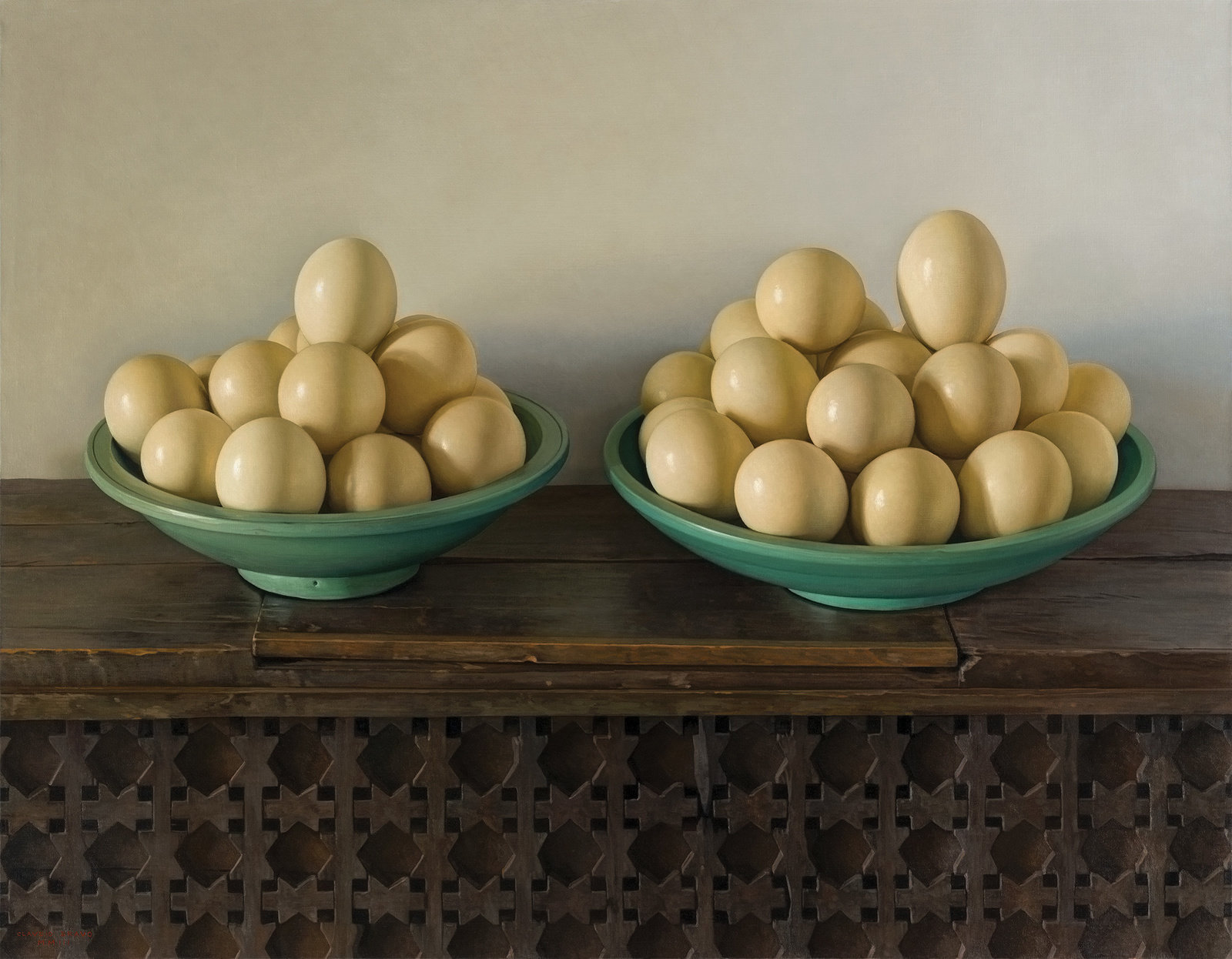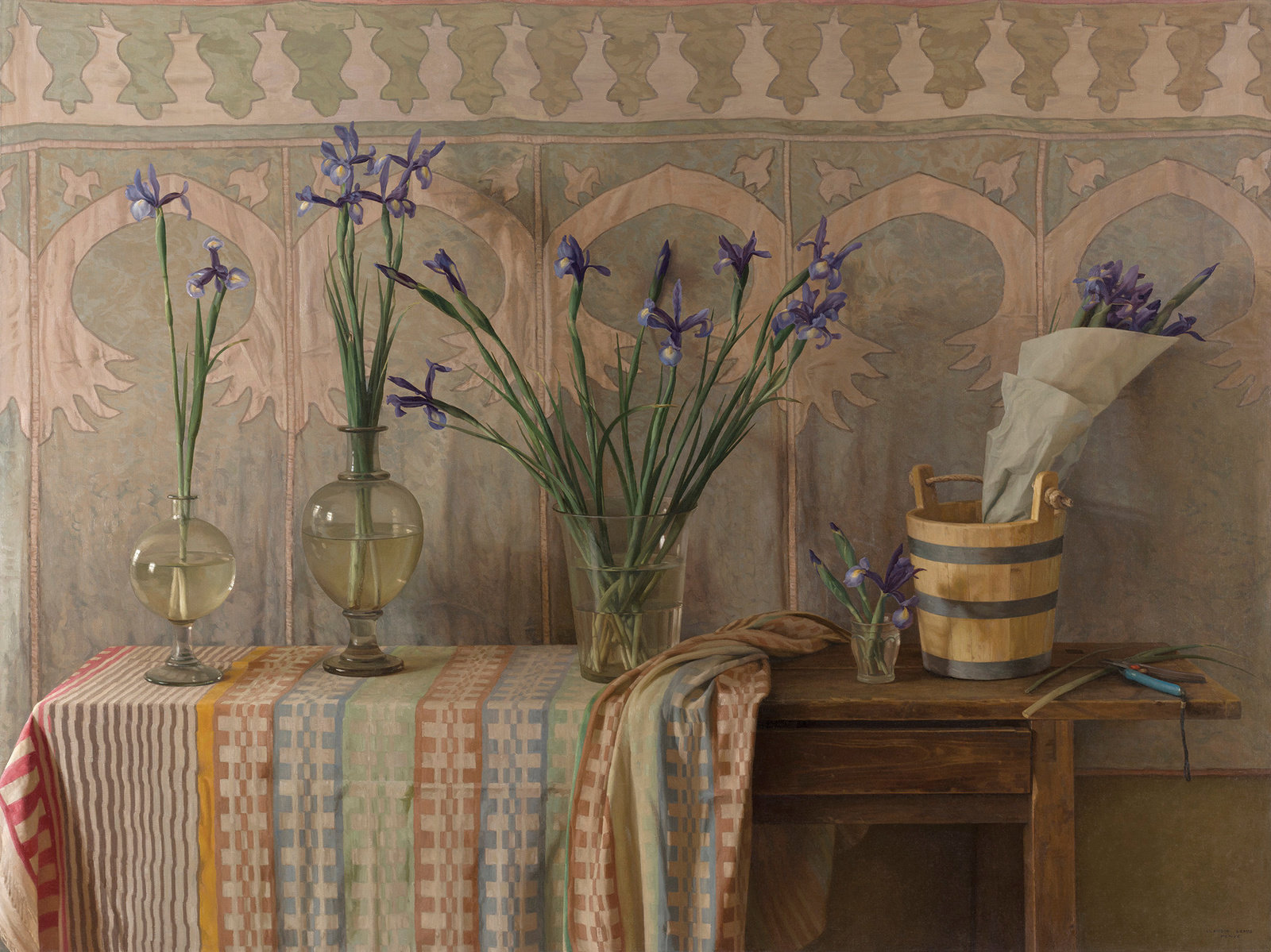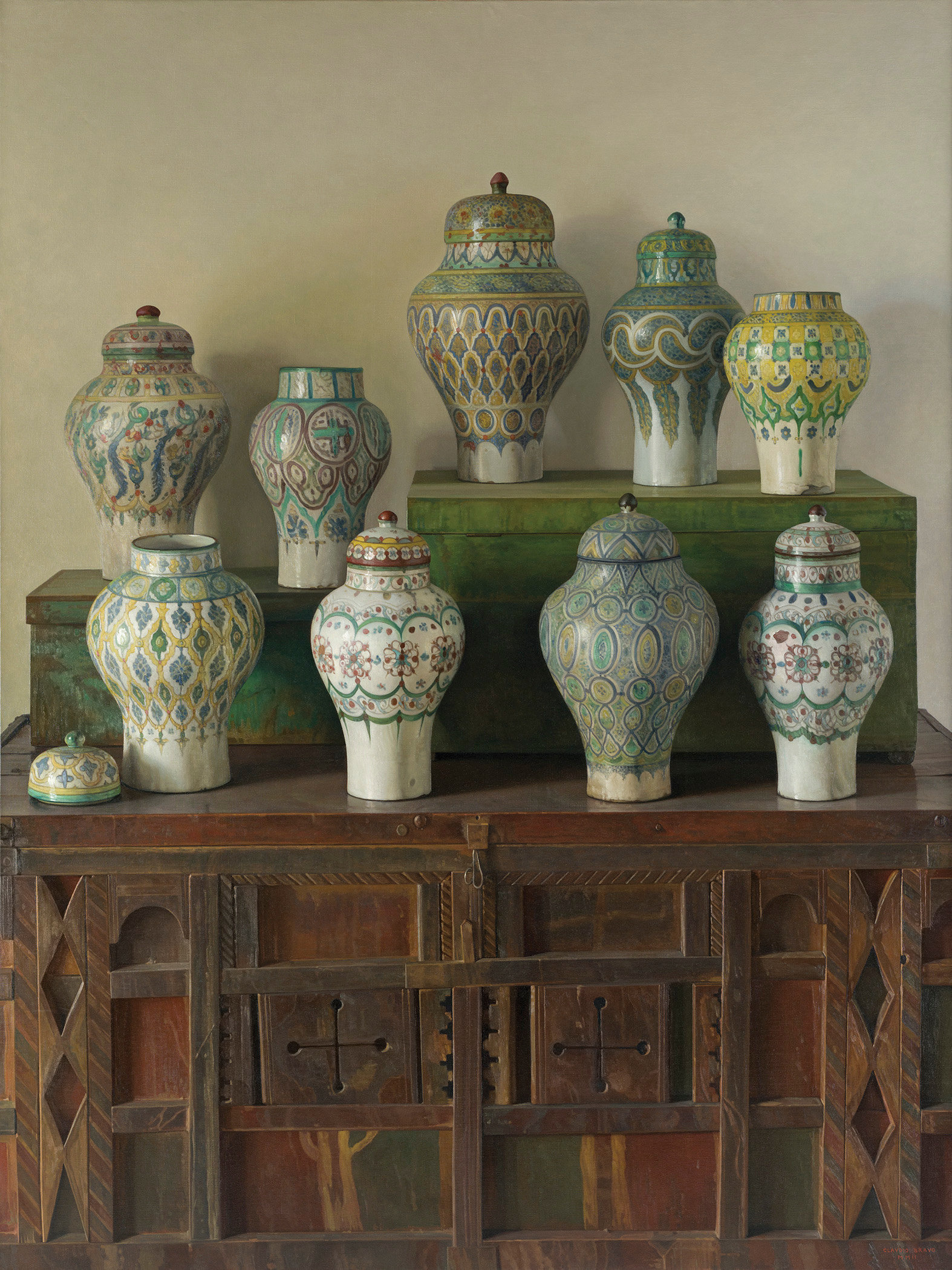Marlborough is pleased to announce an exhibition of paintings and works on paper from the estate of the Chilean artist Claudio Bravo. The artist, who died in 2011, was possibly the greatest realist painter of his time.
For the most part the works in the show were executed during the last two decades of the artist’s life. Beginning in 1990, with a masterpiece of still life painting entitled Irises, the show includes paintings, pastels, and drawings depicting a range of subjects Bravo treated during his lifetime and concludes with five paintings from 2010. Beige and Grey Triptych, one of three large triptychs in the show which combine paintings together of wrapped packages, a subject for which he is perhaps most celebrated. Along with the triptychs are two single paintings of Bravo’s “packages,” one from 1995 entitled Blue and Green Package, the other from 2005 entitled Purple and Grey-Blue Package, and both among the outstanding works in this visually compelling exhibition. One of the most dazzling paintings in the exhibition is Khabyas from 2002. This oil on canvas measuring approximately 78 by 59 inches depicts ten Moroccan ginger jars each with its own distinctive rich patterning and intriguing shape. A striking and vivid contrast of textures is created between the ravishing colors and cool surfaces of the glazed jars and the warm, organic wood surfaces of the boxes and cabinet.
One could claim that the hallmark of Bravo’s work regardless of the subject is simplicity and elegance. Nowhere is this more visible than in his last works which were devoted to paintings of colored papers. Within these works the papers become abstract shapes where color and form interact with little reference to the natural world. These are arguably the purest of all Bravo’s works and represent a unique achievement in late twentieth century art. Marlborough will show eleven of these, and among these larger paintings is a tour de force entitled Paper azul from 2008.
The late Gerrit Henry described Bravo’s work in Art in America as “astonishing and riveting” and said his “paintings are praiseworthy in their fidelity to both the homely and the rare and for their rapt declamation of technical values that somehow bespeak the spiritual.” On the occasion of artist’s show of drapery paintings at Marlborough Gallery in 2000, Ken Johnson in The New York Times wrote of the paintings’ “transcendental grace” and called Bravo’s work “a tantalizing mix of the spiritual and the sensual.” It was Bravo’s masterful control of space and light that was central to his work and gave his paintings their “evocative calmness” and the “hallucinatory reality of a dream.” Bravo said of his practice, “The objects I paint transcend and magnify reality. I use light somewhat in the way Francisco de Zurbarán did. He was one of the few painters that gave true transcendent meanings to objects. This treatment of light makes them appear more as they are. Their essence is greater.” In his book Claudio Bravo (Rizzoli, 1985) the author and professor Edward J. Sullivan wrote, “Bravo’s art in many instances seems to straddle two worlds, that in which we exist and another slightly beyond our comprehension: Bravo has taken the real to another plane of perception.”
Bravo’s works may be found in the collections of museums around the world among which are the following: Baltimore Museum of Art, Maryland; Ludwig Museum, Cologne, Germany; The Metropolitan Museum of Art, New York; Museo Nacional de Bellas Artes, Santiago, Chile; Museum Boijmans Van Beuningen, Rotterdam, the Netherlands; Museum of Modern Art, New York; Museum of Fine Arts, Boston, Massachusetts; and the Rufino Tamayo Museum of International Contemporary Art, Mexico.
In 1996 Claudio Bravo received the prestigious Gold Medal of Honor from the Casita Maria settlement house, in 2000 he received the “Art Miami International Distinguished Artist” award and in 2005 he was inducted into the Pastel Society of America’s Hall of Fame.
An illustrated catalogue will be available at the time of the exhibition.
Works
